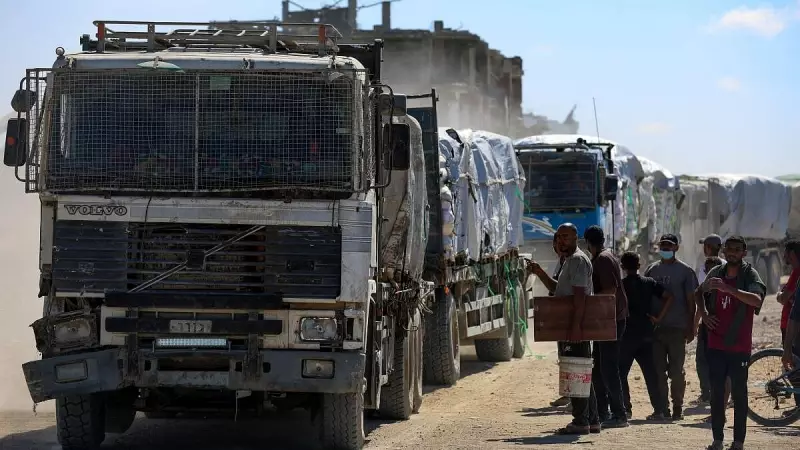
In a significant development that could reshape humanitarian operations in the conflict-ridden Gaza Strip, the International Court of Justice (ICJ) has issued a direct order to Israel, compelling the nation to allow United Nations aid convoys to flow into the Palestinian territory without obstruction.
The Court's Directive: A Humanitarian Imperative
The world's top court delivered a clear verdict: Israel must immediately cease any actions that prevent the UN from delivering critically needed humanitarian assistance to Gaza's civilian population. This ruling comes as the region faces what many international organizations describe as a catastrophic humanitarian situation, with shortages of food, medicine, and basic supplies affecting millions.
UN's Internal Challenges: An Organization Under Pressure
While the ICJ's ruling primarily targets Israeli policies, the decision also casts an indirect spotlight on the United Nations' own operational difficulties throughout the ongoing conflict. The UN's humanitarian agencies have faced numerous challenges in coordinating and delivering aid effectively, raising questions about the organization's capacity to respond to crises of this magnitude.
Operational Hurdles in a Conflict Zone
The United Nations Relief and Works Agency (UNRWA) and other UN bodies have encountered significant obstacles including:
- Security concerns for humanitarian workers
- Logistical complications in supply chain management
- Coordination challenges with multiple stakeholders
- Funding shortages affecting operational capacity
The Bigger Picture: International Law in Action
This ICJ ruling represents more than just a procedural decision—it marks a crucial moment in the application of international law to ongoing conflicts. The court's intervention demonstrates the growing international pressure to address the humanitarian consequences of the Gaza conflict through legal channels rather than purely political means.
What This Means for the Region
The immediate implications of this ruling are substantial. If implemented effectively, it could:
- Significantly increase the flow of essential supplies to Gaza's civilian population
- Establish important legal precedents for future humanitarian interventions
- Create new dynamics in the international community's approach to the conflict
- Potentially open avenues for more robust international monitoring mechanisms
As the international community watches closely, the implementation of this ruling will test both Israel's compliance with international law and the UN's ability to overcome its operational limitations in delivering life-saving assistance to those in desperate need.





